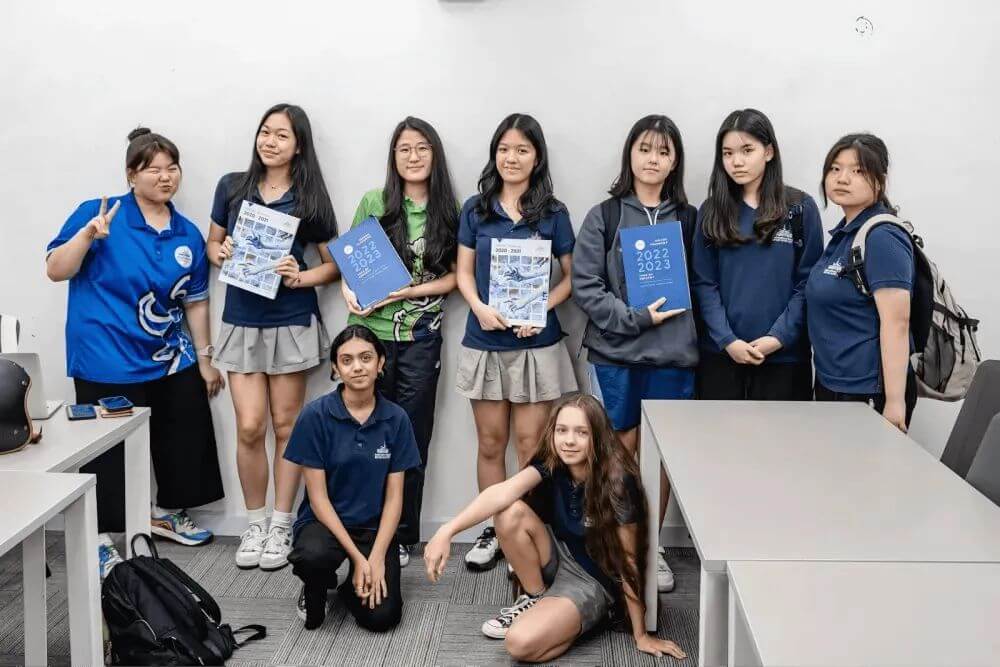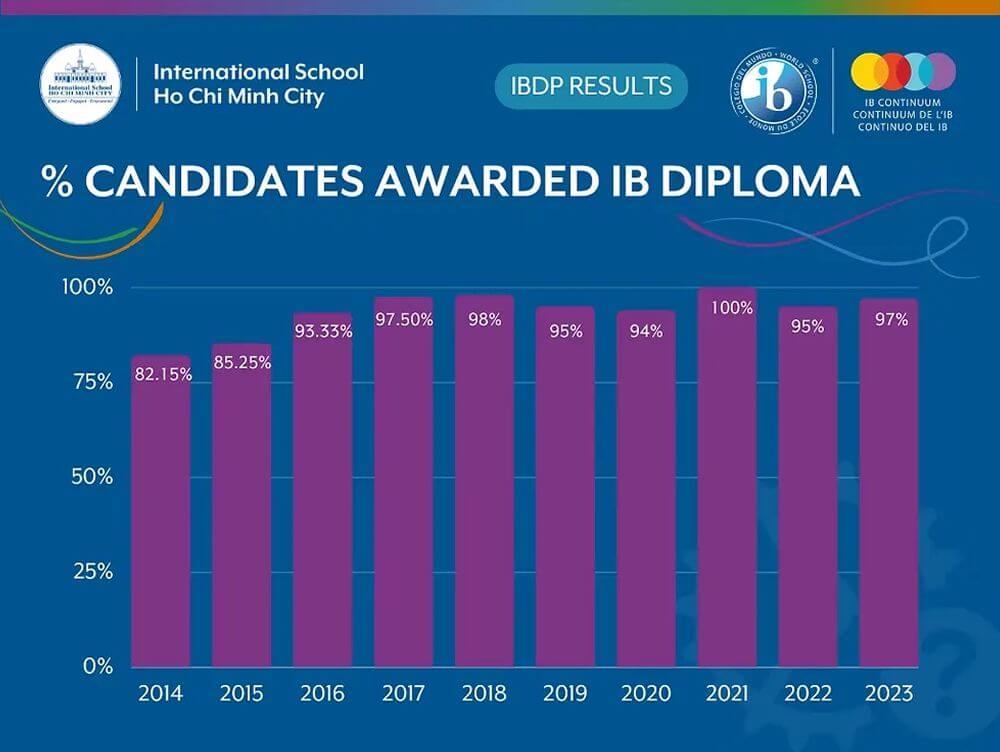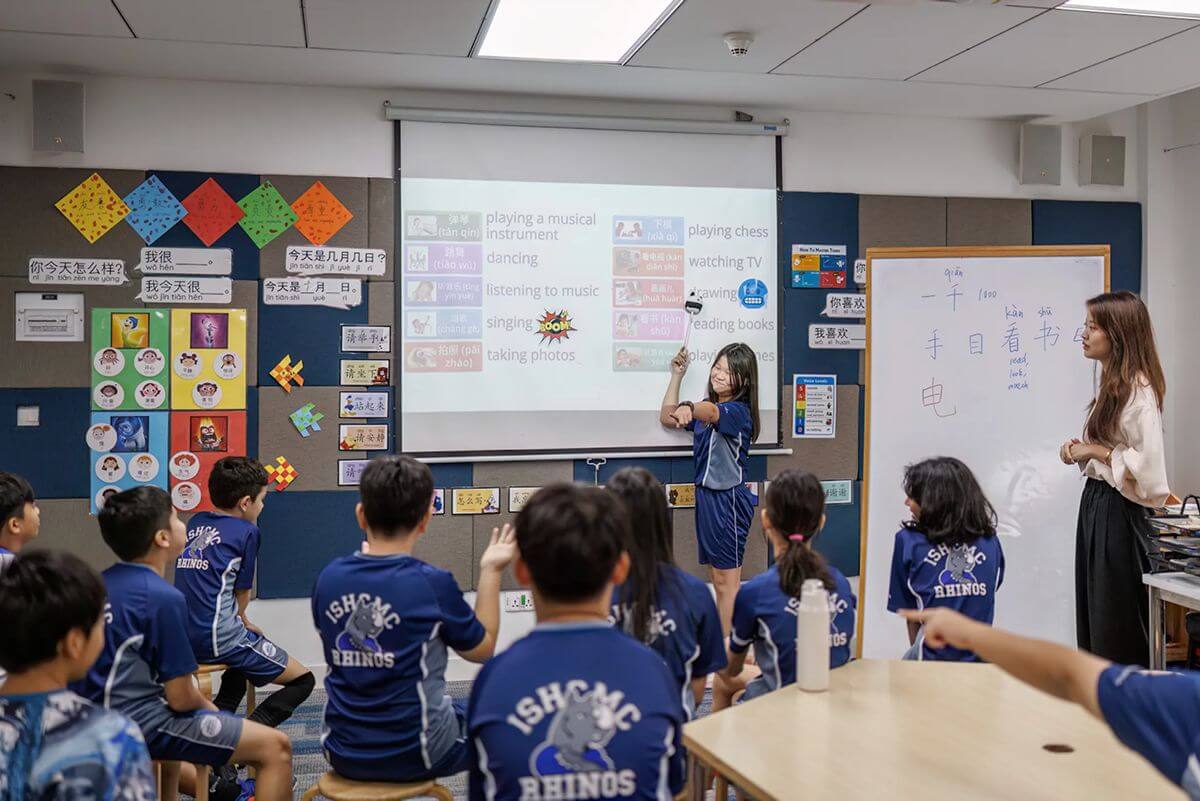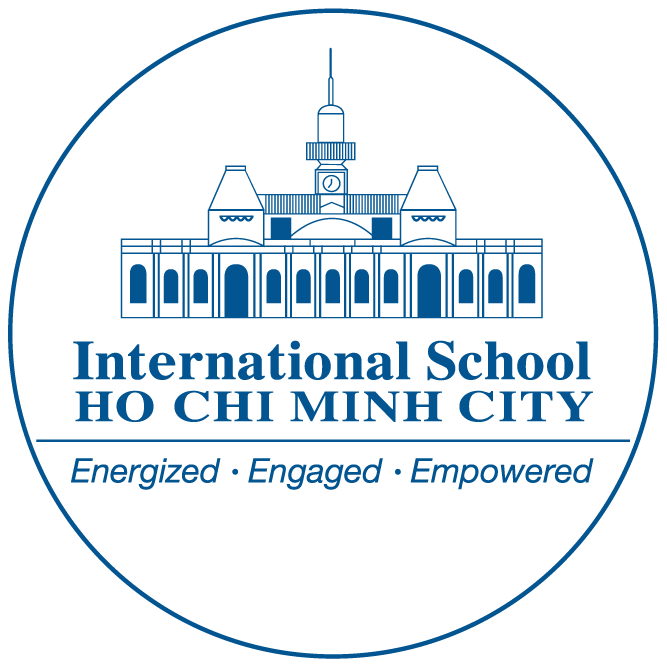What is the International Baccalaureate (IB) Programme?
The International Baccalaureate stands out as a future-focused and holistic education that prepares students to be successful in a changing world. Recognized by leading universities and employers around the globe, the IB curriculum equips students with strong academic knowledge while fostering critical thinking, ethical decision-making, and effective cross-cultural communication. ISHCMC integrates the IB programme into all grade levels, offering a consistent, inquiry-driven approach that empowers students from early years to graduation.
What is the IB Programme?
The International Baccalaureate (IB) Programme is a globally recognized educational framework that develops inquiring, knowledgeable, and caring young people. It fosters academic excellence while nurturing curiosity, independence, and intercultural understanding. From early years through to graduation, students engage with a concept-driven, inquiry-based approach that empowers them to ask big questions and seek meaningful answers.
At the International School Ho Chi Minh City (ISHCMC), students follow this rigorous pathway from the Primary Years Programme (PYP) to the Middle Years Programme (MYP) and finally the Diploma Programme (DP). With 25 years of experience graduating IB students, ISHCMC has built a legacy of developing confident, self-directed learners who go on to excel at top global universities.
What are the Benefits of the IB Programme?
IB programme’s holistic approach to education benefits students with a lasting impact, extending well beyond academics:
- Academic rigor with flexibility: IB challenges students to excel academically while allowing them to explore subjects that align with their interests and strengths.
- Real-world application: Learning connects real-life contexts, encouraging students to apply knowledge meaningfully. For instance, at ISHCMC, a student’s classroom-designed bicycle earned a partnership with McLaren.
- Global recognition: IB qualifications are accepted by universities in over 100 countries, including prestigious institutions in the US, UK, Australia, and beyond.
- Soft skill development: Through inquiry-based learning and assessments, students build time management, research, public speaking, and leadership skills.
- Holistic development: IB emphasizes emotional intelligence, community service, and global citizenship, ensuring students grow as balanced individuals.
- University pathways: The IB’s emphasis on critical thinking, research, and independent learning aligns closely with what higher education institutions expect. These are among the most recognized IB diploma benefits, driving ISHCMC to offer personalized academic pathways for students to strengthen their academic performance and prepare for real-world success.
What Types of IB Programmes?
The IB offers three structured programmes, each tailored to specific developmental stages. These programs form a seamless educational journey from early years through to university preparation.
Primary Years Programme (PYP)
Designed for children aged 3 – 11, the PYP provides the foundation for independent, active learning. It encourages students to explore and express ideas through structured inquiry. The transdisciplinary framework helps learners make sense of the world by connecting knowledge across subjects, literacy, numeracy, social studies, science, and the arts, while fostering essential social and emotional skills.

At ISHCMC, students in the PYP learn to collaborate, question, and reflect. The environment is nurturing, yet academically purposeful, ensuring children gain confidence early in their education.
Middle Years Programme (MYP)
For students aged 11- 16, the MYP bridges academic learning with real-world application. Its interdisciplinary approach allows students to see how subjects relate to one another and broader global issues. The programme sharpens students’ ability to manage their own learning while developing research, communication, and problem-solving skills.

At ISHCMC, MYP learners engage in community projects, interdisciplinary units, and hands-on investigations. They are encouraged to become thinkers who act with integrity and compassion.
Diploma Programme (DP)
The IB Diploma Programme is a pre-university course for students aged 16–19. Known for its academic challenge and broad subject offering, the DP includes six subject groups and three core elements,Theory of Knowledge (TOK), the Extended Essay (EE), and Creativity, Activity, Service (CAS).
- TOK helps students reflect on how they acquire knowledge across disciplines, sharpening their analytical thinking.
- EE allows students to investigate a topic of personal interest and produce a 4,000-word academic paper demonstrating university-level research and writing.
- CAS fosters balance, encouraging students to participate in artistic, physical, and service-based projects. At ISHCMC, this often translates into community-driven leadership initiatives. One student launched MASD, a charity born out of their CAS experience.

Students at ISHCMC can pursue the full IB Diploma subjects or opt for a hybrid track combining IB courses with the ISHCMC High School Diploma.
What is IB’s Approach to Learning?
The IB’s distinctive strength lies in teaching students how to learn, not just what to learn. This philosophy centers around the Approaches to Learning (ATLs),a set of interrelated, transferable skills that empower students to become self-aware, independent, and proactive learners.
These five skill areas are deeply embedded across all IB programmes:
- Thinking Skills: Students learn to analyze ideas, evaluate information, and reflect critically. They develop original solutions to problems and explore different perspectives—essential tools for the real world.
- Research Skills: Students are trained to approach knowledge responsibly and independently, from planning investigations to citing sources accurately. At ISHCMC, students use digital tools, interviews, and case studies to deepen inquiry.
- Communication Skills: IB learners express ideas clearly, listen actively, and engage with others across cultural and linguistic boundaries. These skills prepare students to collaborate and lead confidently.
- Social Skills: Emphasizing empathy, negotiation, and leadership helps learners develop emotional intelligence and interpersonal awareness. ISHCMC’s multicultural environment strengthens these attributes every day.
- Self-management: Students practice emotional regulation, goal-setting, and time management. They learn to persevere through challenges and take initiative—skills critical to thriving in dynamic environments.
At ISHCMC, this philosophy translates into a dynamic classroom experience. Students engage in hands-on learning, project-based inquiry, and real-world challenges, guided by teachers who empower them to take ownership of their learning. This practice cultivates learners who ask powerful questions, design their own experiments, and collaborate across disciplines.
Explore the learning experience at ISHCMC today to discover how your child can thrive in an environment that inspires curiosity, creativity, and confidence.
FAQs
1. How does the IB Programme compare with the IGCSE? Families often consider IB vs IGCSE when exploring international schools. While the IGCSE centers around subject-specific content and external assessments, the IB Middle Years Programme fosters inquiry, real-world connections, and integrated thinking, laying a foundation for self-directed learning and leadership.
2. What are the differences between IB and A-levels? When comparing A level vs IB, the distinction becomes clear: A-levels emphasize depth in a few subjects, whereas the IB Diploma values a broader scope of academic and personal development. The added elements of CAS, Extended Essay, and Theory of Knowledge make the IB ideal for preparing students with life and career-ready skills
3. IB vs. Advanced Placement (AP): Which is more suitable? The comparison of IB vs AP reveals different strengths. Advanced Placement (AP) works well in U.S.-based education systems, offering subject-specific courses. In contrast, the IB Diploma delivers a cohesive programme built around global standards, interdisciplinary learning, and leadership development—something increasingly valued by top international universities.






